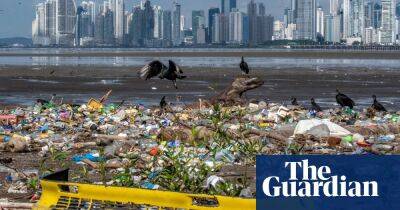Fossil fuels kill more people than Covid. Why are we so blind to the harms of oil and gas?
I f fossil fuel use and impact had suddenly appeared overnight, their catastrophic poisonousness and destructiveness would be obvious. But they have so incrementally become part of everyday life nearly everywhere on Earth that those impacts are largely accepted or ignored (that they’ve also corroded our politics helps this lack of alarm). This has real consequences for the climate crisis. Were we able to perceive afresh the sheer scale of fossil fuel impact we might be horrified. But because this is an old problem too many don’t see it as a problem.
Human beings are good at regarding new and unfamiliar phenomena as dangerous or unacceptable. But long-term phenomena become acceptable merely because of our capacity to adjust. Violence against women (the leading form of violence worldwide) and slower forms of environmental destruction have been going on so long that they’re easy to overlook and hard to get people to regard as a crisis. We saw this with Covid-19, where in the first months most people were fearful and eager to do what it took to avoid contracting or spreading the disease, and then grew increasingly casual about the risks and apparently oblivious to the impacts (the WHO charts almost 7 million deaths in little over three years).
To normalize is to turn something into the status quo, into something no longer seen as a problem, and this in turn undermines the impetus to pursue a solution. The very term crisis often implies a turning point or a decisive moment; these are problems with no turning point in sight, a long succession of indecisive moments as the damage mounts. Often what activists need to do is turn the status quo back into a crisis, as US Civil Rights Movement organizers so ably did in the 1960s by
Read more on theguardian.com




















